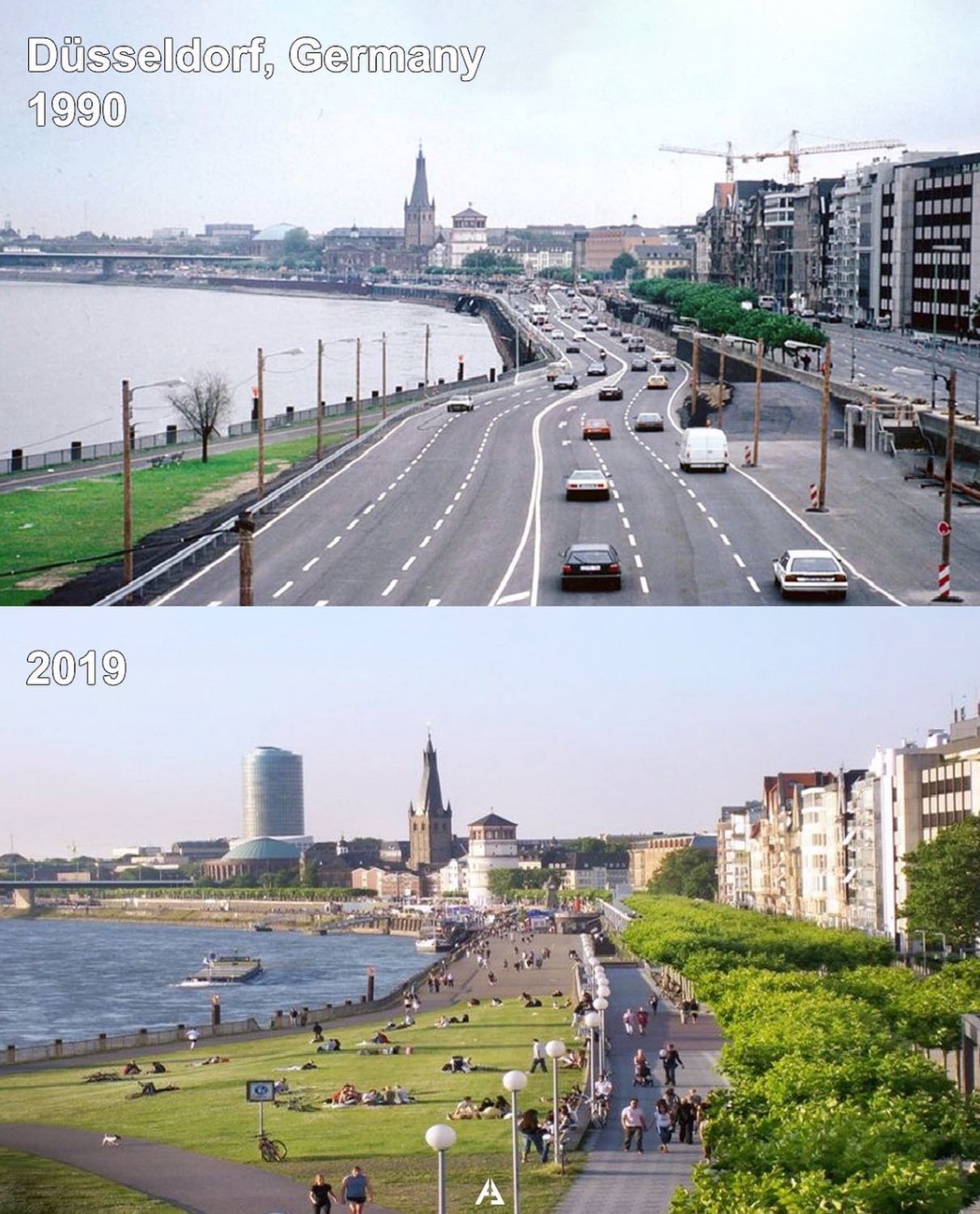this post was submitted on 27 Jul 2023
2249 points (99.7% liked)
Mildly Interesting
21875 readers
699 users here now
This is for strictly mildly interesting material. If it's too interesting, it doesn't belong. If it's not interesting, it doesn't belong.
This is obviously an objective criteria, so the mods are always right. Or maybe mildly right? Ahh.. what do we know?
Just post some stuff and don't spam.
founded 2 years ago
MODERATORS
you are viewing a single comment's thread
view the rest of the comments
view the rest of the comments

By your own definition "logical city planning" is best done with a good and well integrated public transportation network and the spaces thus freed by having fewer cars being repurposed for uses with proven health benefits compared to roads ... which just happen to be green spaces as there are actual proven benefits for human mental and physical health, both from the greenery and the reduction in noise an particulate polution when big roads with heavy traffic are removed.
Favoring individual cars in a urban environment is actually worse in pretty much every metric: not just mental and physical health but even timewise as better public transportation means way less time wasted in traffic jams, because of all the cars removed from the road and because paradoxically more roads incentivise more cars, so new/bigger roads solve traffic jam problem for a while and then eventualyl it get as bad or worse than before only now there are even more cars, hence more people, stuck in traffic, so more public transportation means shorter commuting times even when you reduce the number/size of roads.
I get the impression that your logic in thinking of more roads for cars as "logical city planning" comes from never having experienced living in an urban setting with a proper well integrated public transport network or widespread use of cycling for short commutes, which is a critical blindspot in knowledge when claiming to understand urban planning.